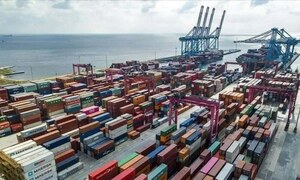LAHORE: A supplier of imported tractors has failed to recover extra duties and taxes because of signing a contract on Delivery Duty Paid (DDP) basis with a provincial government, said sources.
They said the provincial government declined to bear the burden of enhanced rate of tax after the signing of a contract against a tender on DDP basis.
The DDP clause of the agreement between the provincial government and the supplier had made it clear that all taxes and duties levied for delivery on DDP shall be to the account of the supplier, who will obtain all exemptions at his own expenses.
It is also worth noting that there was an exemption from the payment of sales tax at the import stage, besides a concessional rate of income tax, at the time of signing of the contract. However, by the time the goods came to be delivered, the exemption from sales tax was wholly withdrawn and rate of income tax was also enhanced. The supplier demanded reimbursement of the same but failed to avail in the presence of DDP.
DDP is a term that is part of International Commercial Terms (Incoterms). This system is well known and established international trade, where it has very wide currency. The Incoterms are a series of pre-defined commercial terms published by the International Chamber of Commerce (ICC) related to international commercial law. Incoterms define the responsibilities of exporters and importers in the arrangement of shipments and the transfer of liability involved various stages of the transaction. They are widely used in international commercial transactions or procurement processes and their use is encouraged by trade councils, courts and international lawyers. It is related to common contractual sales practices, the Incoterms rules are intended primarily to clearly communicate the tasks, costs, and risks associated with the global or international transportation and delivery of goods.
Similarly, the Incoterms rules are accepted by governments, legal authorities, and practitioners worldwide for the interpretation of most commonly used terms in international trade. They are intended to reduce or remove altogether uncertainties arising from the differing interpretations of the rules in different countries. As such they are regularly incorporated into sales contracts worldwide.
Copyright Business Recorder, 2024






















Comments
Comments are closed.